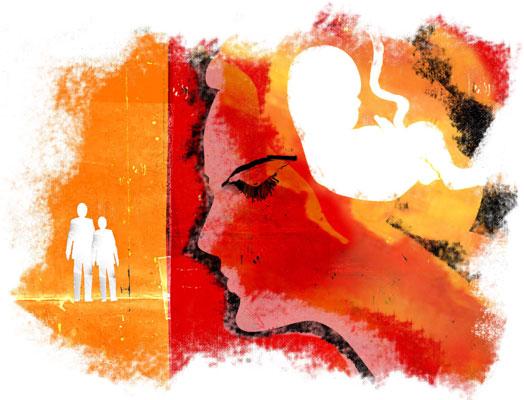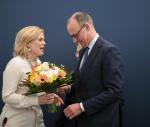You are here
‘New laws needed to encourage women to join workforce’
By Dana Al Emam - Oct 11,2016 - Last updated at Oct 11,2016

Minister of ICT and Minister of Public Sector Development Majd Shweikeh speaks during a panel discussion at the Women’s Economic Participation conference in Amman on Tuesday (Photo by Hassan Tamimi)
AMMAN — Endorsing more women-friendly laws and regulations would encourage women’s participation in the workforce and challenge some prevailing cultural stereotypes, experts said on Tuesday.
Working women, who form around 14 per cent of the formal economy, often find they have to work twice as hard to challenge the status-quo of the glass ceiling and reach senior positions, said Minister of ICT and Minister of Public Sector Development Majd Shweikeh.
Yet, statistics do not reveal how many women are working in the informal economy, she said during a panel discussion at the Women’s Economic Participation conference, organised by USAID Takamol.
Establishing day-care centres in workplaces would solve half the problem of the low number of women working outside the home, the minister said, adding that flexible hours and allowing women to work from home would encourage more of them to work or to return to the workforce.
These incentives must be stipulated by laws, she noted.
Meanwhile, Minister of Political and Parliamentary Affairs and Minister of State Musa Maaytah said endorsing women-friendly laws could solve part of the problem, but the main issue to work on is changing society’s perceptions to recognise women’s issues as public issues.
“A good law is one that convinces people and encourages their abidance,” he said, adding that laws are usually the result of a social consensus on a certain issue.
Although the advancement of democracy serves women the most, their presence in political parties and professional and labour associations is “weak and regressing”, Maaytah added.
But Asma Khader, the president of the Sisterhood Is Global Institute/Jordan, said the government should set an example for the private sector in its policies towards female employees.
In addition, the former minister said, several legal texts must be amended to grant gender equality, including Article 6 of the Constitution, the Personal Status Law and Article 308 of the Penal Code, while international agreements that Jordan has signed must be implemented.
Article 6 of the Constitution stipulates that Jordanians are equal before the law, regardless of language, religion or ethnicity. Activists want gender to be added to the provision.
The Penal Code’s Article 308 enables rapists to avoid punishment if they marry their victims.
Salma Nims, the secretary general of the Jordanian National Commission for Women, criticised the lack of efforts to challenge the “traditional forces that for the past 60 years have limited women’s role to the home”.
She cited a need to transform development planning mechanisms to allow women to be an integral part of the decision making process.
“Has women’s economic participation in the workforce made them able to take decisions at home and in the workplace?” Nims asked.
Related Articles
AMMAN — The Jordanian National Commission for Women (JNCW) on Sunday called for cancelling Article 308 that pardons rapists if they marry th
AMMAN — Women activists and representatives from the civil society on Sunday released a position paper that offers more solutions for victim
HRH Princess Basma on Wednesday urged the local media to raise the level of debate on the controversial Article 308 of the Penal Code that allows rapists to escape punishment if they marry their victims.

















